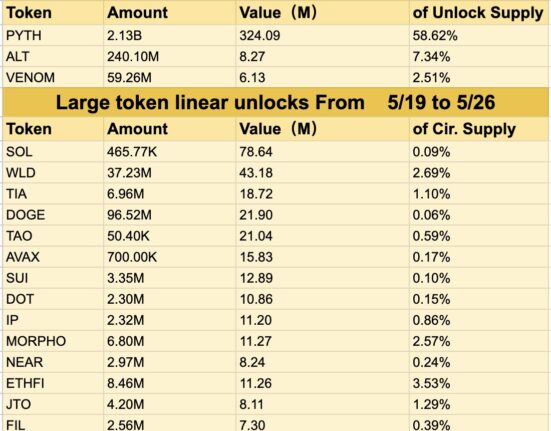The Taiwan Financial Supervisory Commission (FSC) has revealed plans to propose a draft law on virtual asset service providers (VASPs) in June 2025. The draft will allow Taiwan banks to issue stablecoins for the first time.
Although Taiwan’s authorities have not yet approved the stablecoins currently circulating in the market, the country still uses them because they are backed by U.S. dollar assets. All VASP providers are also required to follow the new VASP registration regulations, which took effect this year, and complete the registration process.
FSC proposes a draft law on VASPs in June
🇹🇼TAIWAN TO PROPOSE VIRTUAL ASSET LAW BY JUNE 2025, ALLOWING BANKS TO ISSUE STABLECOINS
Taiwan plans to introduce a virtual asset law by June 2025, which will allow banks to issue stablecoins, bridging traditional and digital finance.
This move aims to regulate and integrate… pic.twitter.com/SnG82h8MDc
— Mario Nawfal (@MarioNawfal) January 23, 2025
FSC Chairman Peng Jinlong highlighted that stablecoins will serve as a bridge between legal tender and cryptocurrency. Jinlong also acknowledged that stablecoins will provide Taiwan investors with a trading portal.
Banking Bureau Director Zhuang Xiuyuan said that the competent authorities did not approve stablecoins such as USDT and USDC, which are currently circulating in the market. Xiuyuan argued that the cryptocurrency industry claimed stablecoins were backed by U.S. dollar assets.
The amendment of the law in the future will require all stablecoins issued in Taiwan to be approved by the FSC, including issuer qualifications and reserve allocation.
Xiuyuan acknowledged that stablecoins moving from “virtual” to the “real” economy would involve monetary policy and financial stability issues, which need to be discussed with the central bank.
On January 9, Peng Jinlong, chairman of Taiwan’s financial regulatory department, said he took a cautious and friendly attitude towards the virtual asset market. The draft of the virtual asset service providers has been completed and will soon enter the public hearing process. The FSC said the draft virtual asset law will be submitted to the administrative management agency of Taiwan before June 30 this year.
Taiwan implements new anti-money laundering rules for VASPs
Taiwan’s Financial Supervisory Commission (FSC) new anti-money laundering (AML) regulations took effect on January 1, requiring VASPs to complete AML compliance registration.
The FSC revealed that failure to comply with the new AML registration requirements will result in criminal penalties, including imprisonment for up to two years and fines reaching NT$5 million (approximately $155,900).
“For industry participants, these rules establish higher barriers to entry and ongoing operation. The new regulations provide stronger legal protection for the development of Taiwan’s crypto industry, making it more attractive for large investors accustomed to traditional finance to participate.”
– Kevin Cheng, secretary general of the Taiwan Fintech Association.
The FSC maintained that all VASPs must adhere to the new registration requirements regardless of their compliance status with previous 2021 AML obligations.
Kevin Cheng, a crypto lawyer and secretary general of the Taiwan Fintech Association, also maintained that non-compliant VASPs will face criminal liability under the new regulations. He added that compliant VASPs will face stricter regulatory obligations, which will align the crypto industry more closely with licensed financial institutions.
The new AML regulations introduced additional qualifications for management teams and emphasized corporate responsibilities, including transaction security and consumer asset protection.
The FSC revealed that the draft would require VASPs to fulfill internal control mechanism obligations to ensure the legality of their services and enhance compliance effectiveness.
VASPs are also required to implement robust information security systems appropriate to their business scale and operations. The systems will safeguard data accuracy, confidentiality, and availability with policies for managing and protecting sensitive operational information.
Additionally, the new AML regulations will require VASPs to create and maintain fair and efficient processes for resolving customer complaints and disputes.
Under the new AML regulations, VASPs must retain business records for five years from the end of a customer relationship or until any related disputes are resolved. The requirement for recordkeeping of business documents will ensure availability for regulatory review.
Article 11 of the draft outlined that VASPs may handle virtual asset transactions involving legal tender with customer consent. To protect user funds, VASPs are also required to follow mechanisms, including trust agreements or bank performance guarantees.
From Zero to Web3 Pro: Your 90-Day Career Launch Plan








